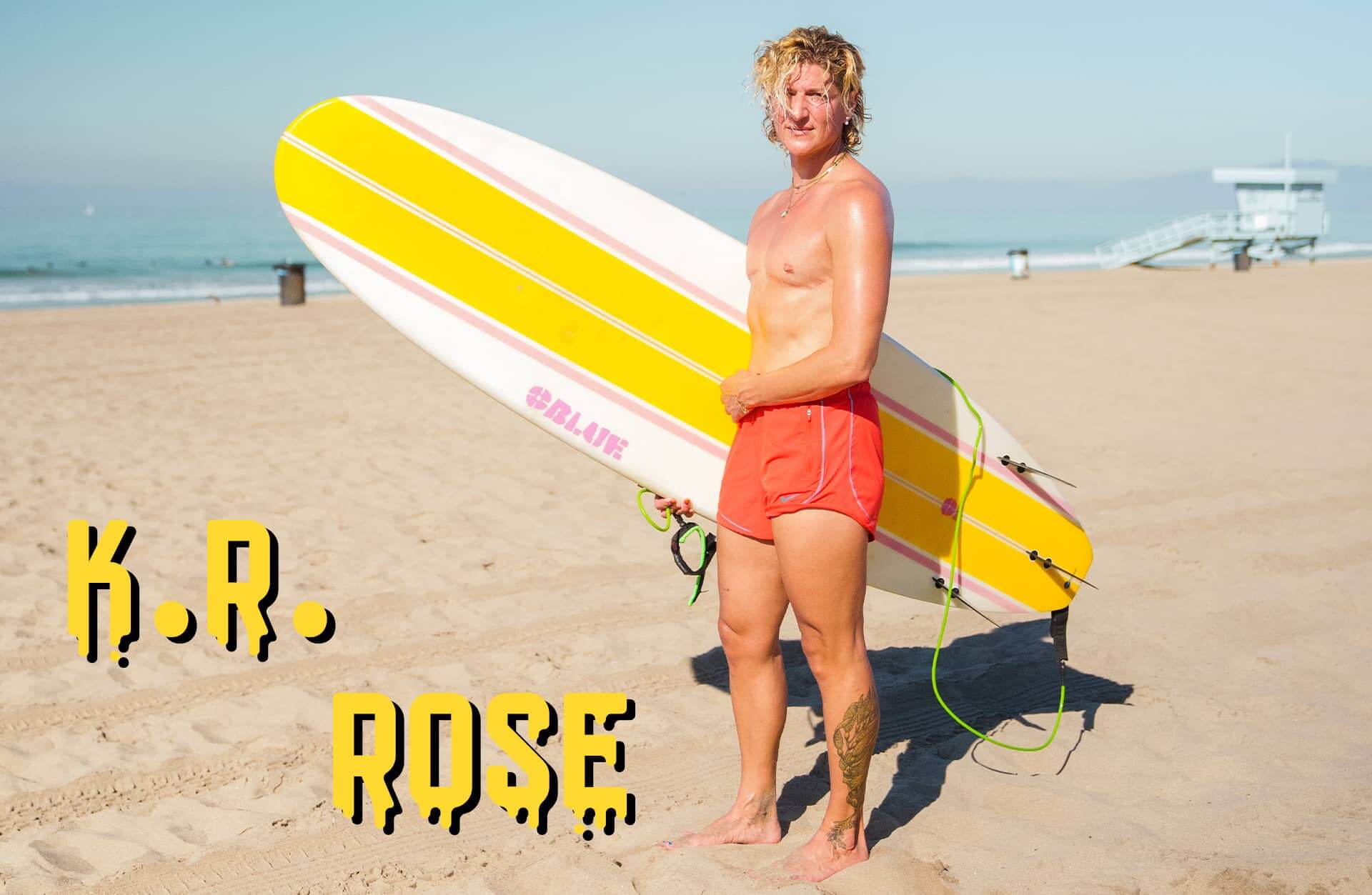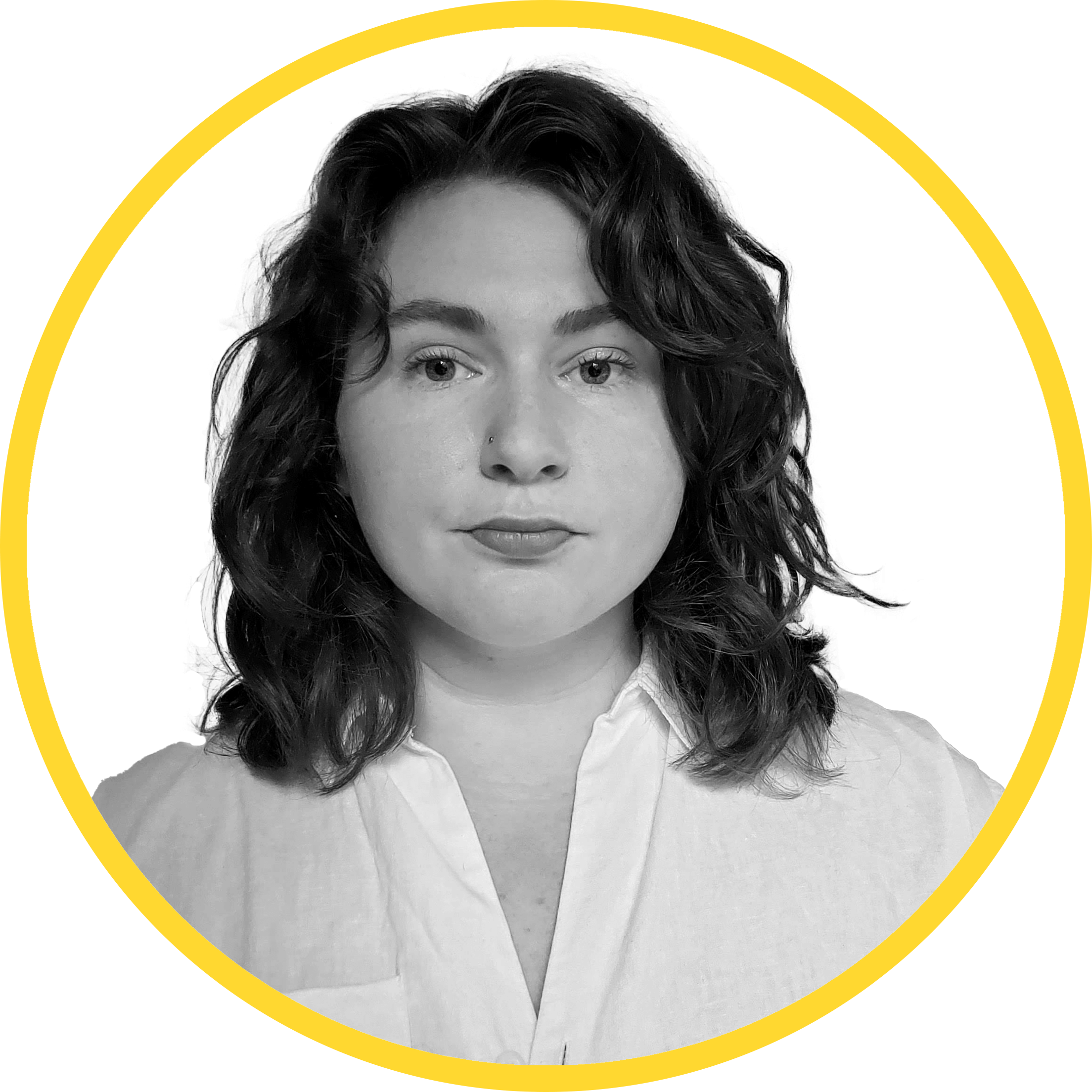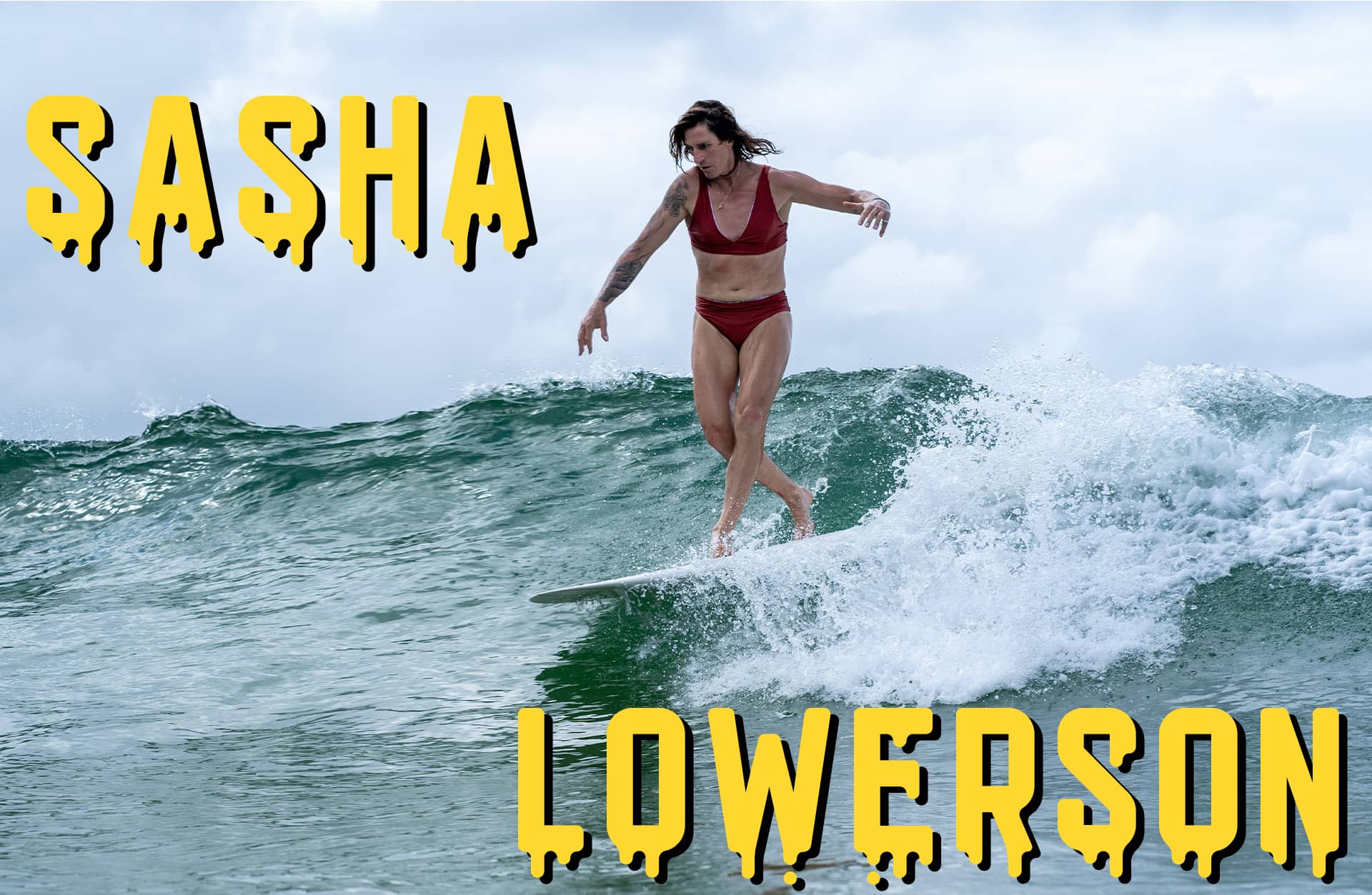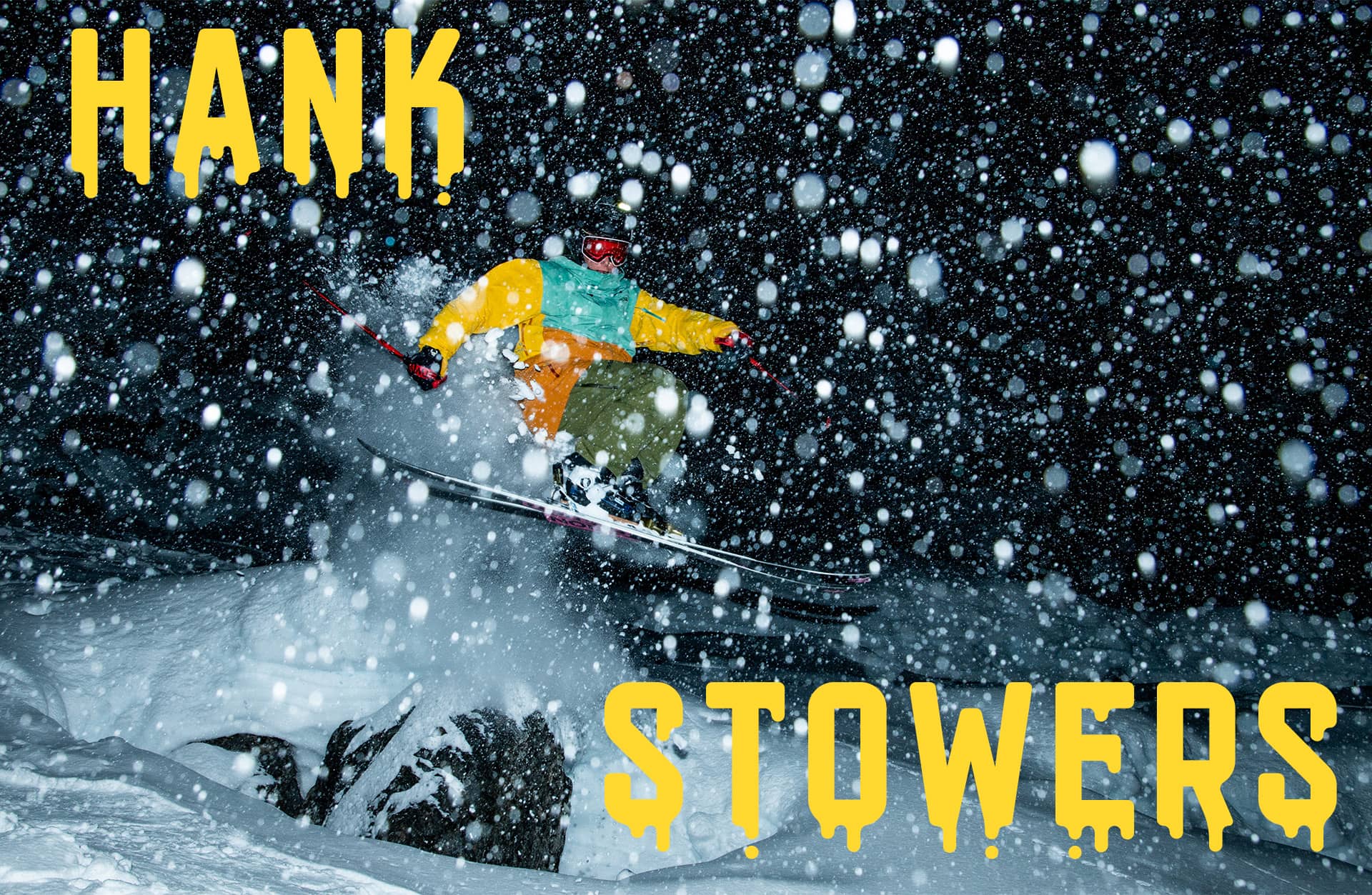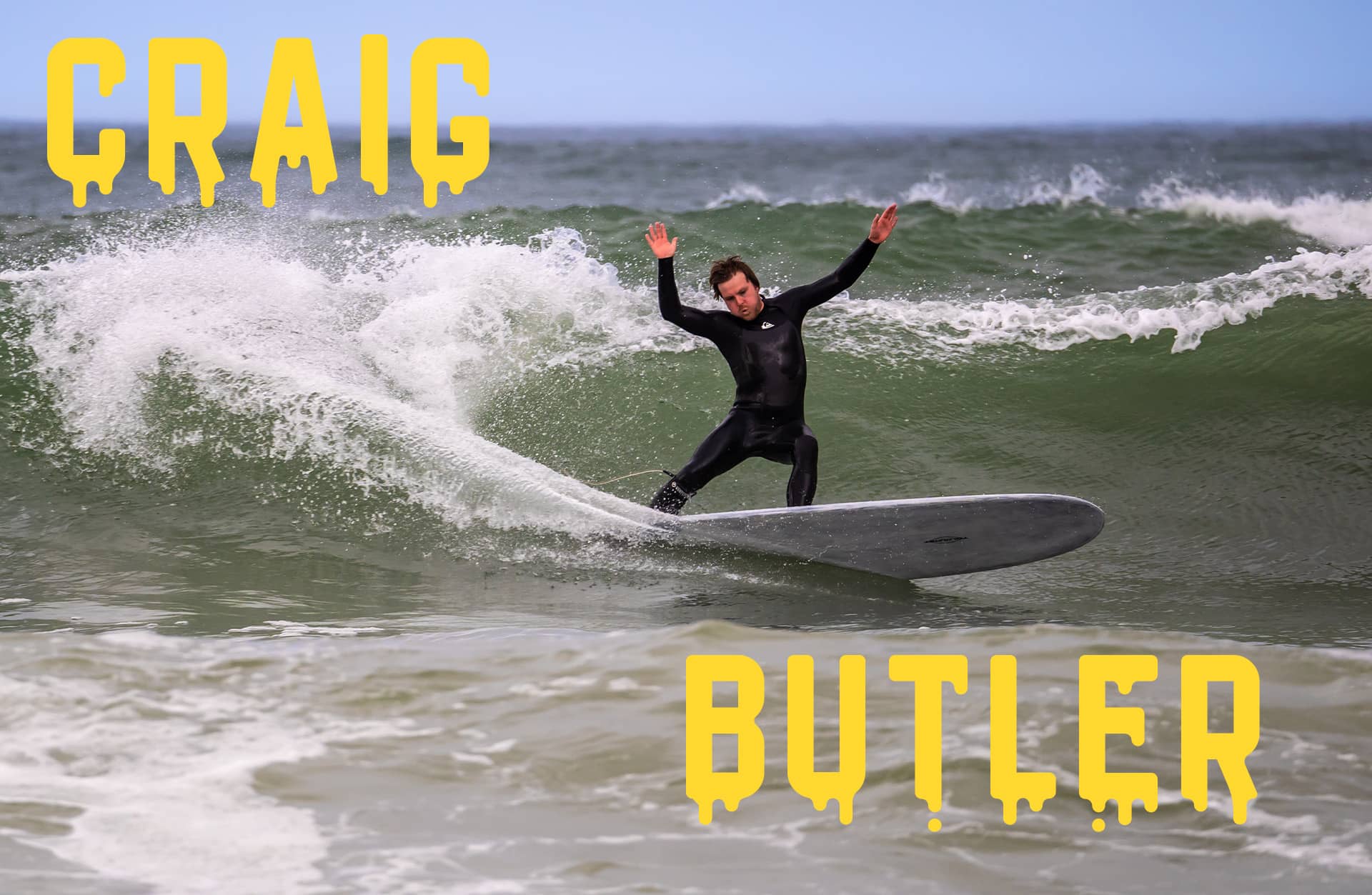SURF // 01 MAR 2023
RIDING THE WAVES OF GENDER FLUIDITY
“The ocean is so undeniably queer,” laughed surfer KR Rose. “It’s just a fact to me. The ocean is so queer. The creatures are so colorful and weird, and so many of them are trans. There’s so many trans fish. It’s just queer. Yeah, to me, that’s a fact.”
Growing up in Upstate New York, Rose was a water baby at heart. Hours away from the closest ocean meant many, many years of competing on the swim team, but there was another water activity that they longed to try. “I was kind of obsessed with the idea [of surfing],” explained Rose. “You know Luke Perry from Beverly Hills 90201? In middle school I thought I had a crush on him, but really, I realize now that I just wanted to be him. He was like, this cool, surfer, Southern California dude, mysterious bad boy. The struggle of a trans masc gay, right? Do I have a crush on him or do I want to be him? For me, the answer is usually both! So when I moved out to California, right after college, part of the reason was that I wanted to learn to surf.”
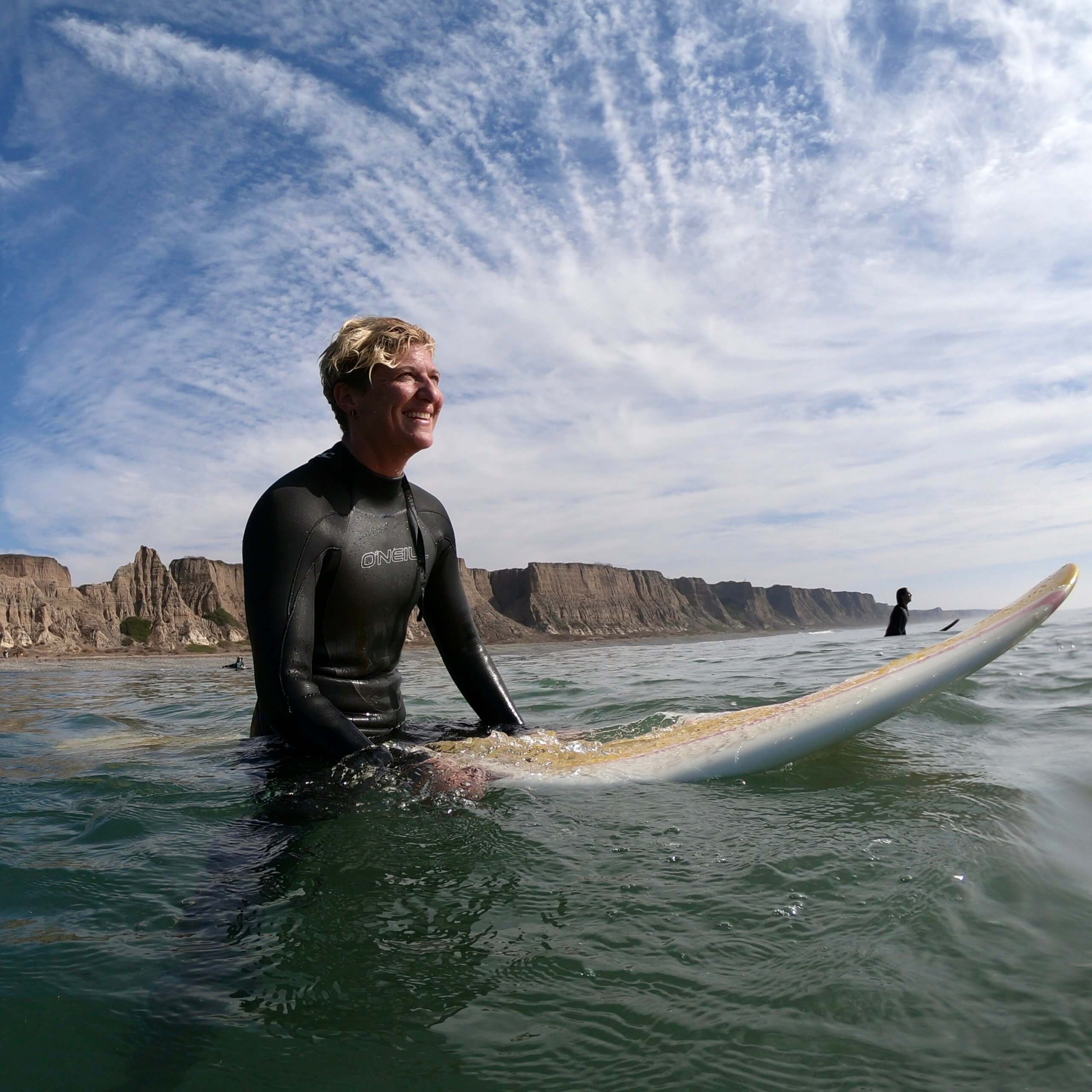
Initially moving to one of California’s channel islands, Santa Catalina Island, Rose went from no ocean to completely surrounded by water. Unfortunately, there were no breaks to surf. The combination of settling from a cross-country move and inaccessibility to a good beginner wave meant surfing had to wait.
Then, upon becoming friends with former pro surfer and co-founder of Queer Surf, Kyla Langen, Rose was quickly handed a board and tossed out into the waves. “I remember going out for my first time ever with Kyla and her brother. I was like, wait, I don’t know what I’m doing,” laughed Rose. “Kyla laid down on the beach after drawing a surfboard in the sand, and they said, if a wave comes, you just like, paddle, paddle, paddle, and pop up. All right, let’s go. That was pretty much my lesson. I got tossed around a lot. I got tossed around for years and then finally started to figure it out. Back in 2006 Kyla was more focused on themselves surfing and let me flail around, but now they teach and train hundreds of Queer & Trans surfers each year with gear and hands on, structured lessons. They’re dedicated to helping folks out into the waves and teaching them how to surf.”
However, Rose’s trial by fire introduction to the sport meant that they did their time in the washing machine. They loved it. Rose smiled as they recalled the first wave they ever caught. “I remember being lucky, catching and standing up on some big wave. My friend saw me from the beach, and was like, ‘you’re a surfer now!’ Then it took several attempts after that before I started standing up again,” they laughed.
Alongside surfing, Rose immersed themselves into the California queer community, though they weren’t quite sure how they would fit in at first. “When I was growing up, we didn’t have words like nonbinary or gender queer, so I didn’t know it was an option,” explained Rose. “It was very confusing for me as a kid. That was the feeling, that I should have been a boy, but I’m also not a boy. I was excited when people thought I was a boy or if I passed as a boy.”
As they met more people, Rose’s definition of queer expanded to encompass more than sexuality. Learning more about gender, Rose, who “had long hair and was trying to be a straight girl”, finally had the tools to explore those feelings they had as a child. “I remember driving up to a queer yoga retreat, Yogay that was put on by Sparkle Thornton, [and talking to Kyla] about exploring ‘they/them’ pronouns for me. She was like, ‘why don’t you just try them out?’” explained Rose. “People respected that and didn’t question if I was queer enough or trans enough and it just felt right. I knew as soon as people started saying ‘they’, that’s me.”
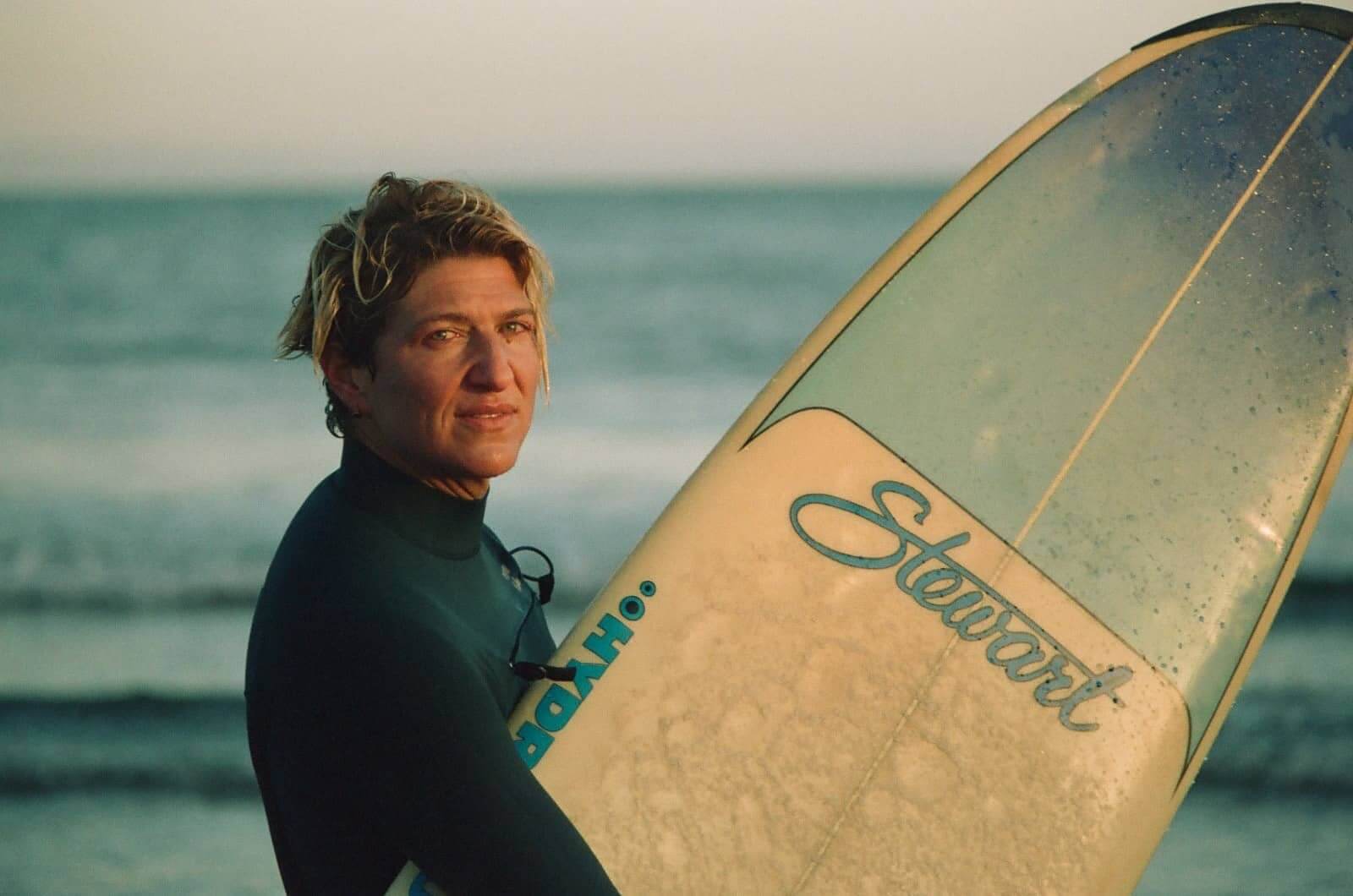
Everything clicked into place. By creating that initial space, Rose was able to take the first step on their journey to better understanding themself. This strategy of taking a small first step is one that Rose encourages other folks who are questioning their gender to employ. “Just try it out. If it doesn’t feel right, you’ll know, may as well try.”
While the road to identifying as nonbinary was a bit long and winding, Rose’s decision to receive top surgery was practically instantaneous. “I will start with [the fact that] my top surgery was totally right for me, totally life changing,” said Rose. “I never liked my boobs. They were always just annoying and in the way. But, I didn’t hate them to the extent that people have extreme dysphoria and wanted to just cut them off or can’t take it. It wasn’t like that for me, but I just never liked them.”
Because of a family history of breast cancer, Rose had to get regular mammograms early in their life. “It was awful. It was so awful. I just hated everything about it.” Then Rose’s partner at the time made a paramount suggestion. Why not get rid of them?
“A light bulb went off,” said Rose. “From that moment on, I was so sure I could never look back. There was never a question like, Should I do it? Am I sure about that? I was just like, yes! How can I get this surgery? I need this!”
Four years post surgery, Rose’s joy is clear in every topless photo they post. “I told myself I would give myself two years after surgery to be self obsessed and post pictures without my shirt on,” laughed Rose. “Then two years came up and I was just like, no, you know what? There were 30 years of not liking my body because of those stupid boobs, so I still get more.”
Of course the pursuit of something as fluid as gender is never a direct path. For Rose, their process of embodying their gender changes every day. “I have an interesting and complicated relationship with testosterone. I’ve been on a low dose for a while. I take the andro gel where you rub it in and adsorbs through the skin,” explained Rose. “I take my dose in a woo woo way, where I hold the bottle and feel within. Like, do I want to take some today? Do I want two pumps? Do I want three pumps? It’s been interesting. There are some aspects of it that feel very right for me, and I’m overall happier. It emotionally feels right, but there’s some physical effects, like the body and facial hair where I’m like ew. It’s a constant journey.”
No matter what changes Rose chooses to or not to make, the constant take away from each is that the only thing that matters at the end of day is how they feel. They emphasized, “As cliche as this is, think outside of the box that you were told to fit into. Even the idea of getting top surgery [as a nonbinary person]. I didn’t think that I wanted to be on T at the time [that I got my] surgery, and I didn’t even know that it was possible to get surgery without being on T.”
However, it is difficult to be what isn’t seen, so as they’ve become more comfortable with their gender expression, Rose has prioritized being visible. “I think about myself as a kid and how there wasn’t any trans representation in my life, and especially nonbinary representation,” they said. “I think about my nine year old self looking at me now. [They would] be so proud of me, just like you did it! This is who you always wanted to be. This is who you are. The more out visible people there are in the world, maybe it’s making younger trans folks’ lives a little bit easier.”
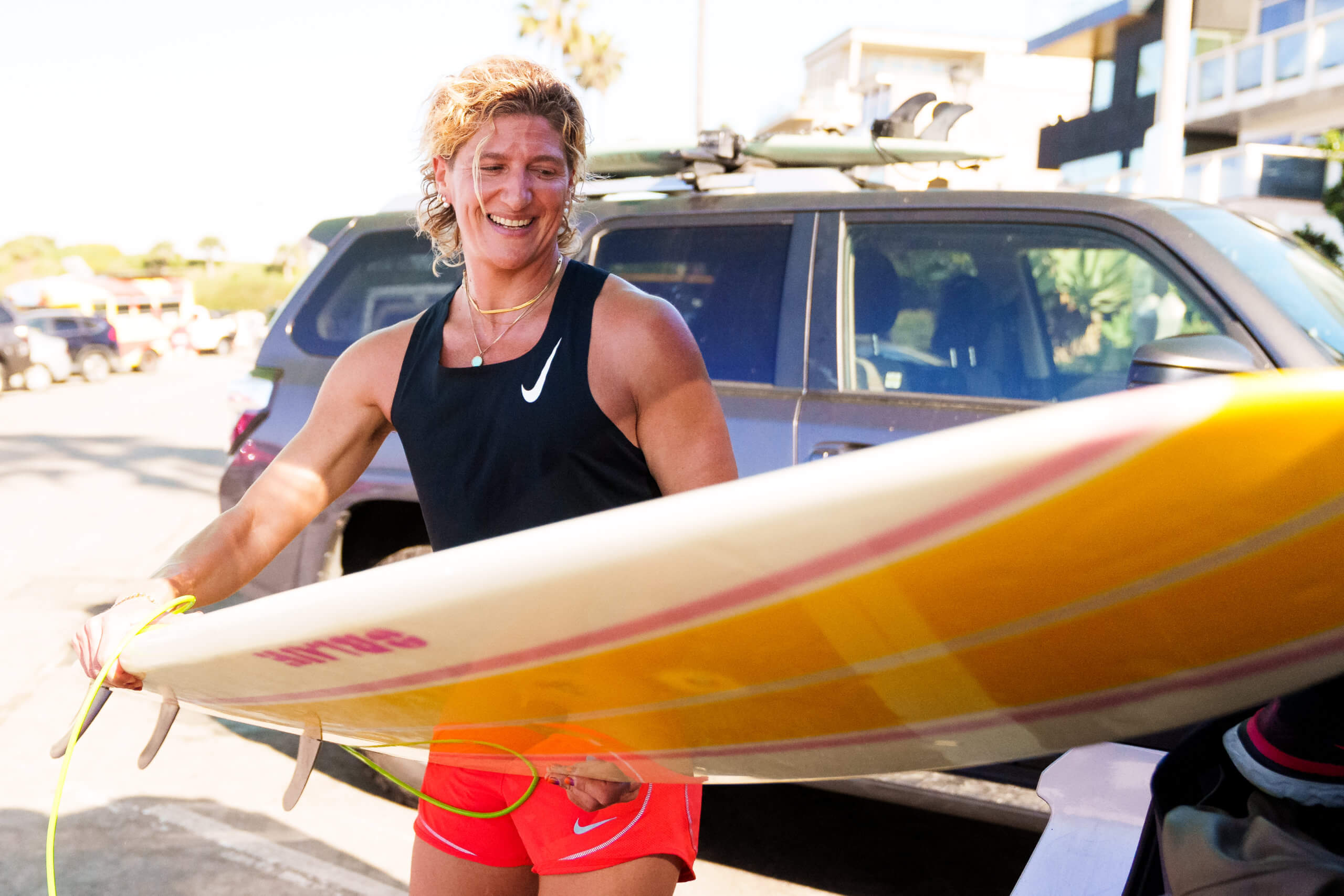
Part of that visibility as a nonbinary person means coming out, a lot. “I wish that we could live in a world where there is no such thing as coming out, where we could just be without being labeled,” said Rose. “But, in the meantime I have to do it over and over and over and I will continue to do so because I feel like that is part of the work that needs to be done. Especially as a white, privileged person. I want to use that privilege to be able to speak up, because I feel safe doing that, which a lot of black trans women, for example, might not feel safe doing. So I do want to take up space and use my privilege to be out, and come out over and over.”
At the same time, Rose isn’t spending every moment in that headspace. Sometimes that representation comes about from simply enjoying life. “This is who I am,” shrugged Rose. “I love surfing, and I love being in nature. Now I get to do it with my shirt off, which I love and is the greatest feeling in the world. To look in the mirror or look at these pictures that I’m posting and be like, yeah, I am hot. It’s fun! I think I’m doing it for me just as much as anybody else.”
In addition to feeling more at home in their skin, Rose’s gender journey also allowed them to feel more comfortable in the water through the queer surf community they found. “I actually didn’t improve with surfing for a very long time because I was only going when I was on vacation or a couple of times a month when I could find a buddy to go with,” explained Rose. “I’d be out there in the water and feel uncomfortable since [other surfers] saw me as a woman and I was surrounded by all these surf bros. Then as I started to present more androgynous, I don’t know how they read me, but it’s just such a weird agro-bro culture and I wouldn’t feel comfortable being there.”
They continued, “I found queer buddies and trans buddies thanks to Queer Surf. Shout out to Kyla and Nic who started that whole movement, because I started meeting other queer folks who I can just reach out to whenever even when it’s not a Queer Surf meetup. I’ve met people and befriended people [that are now] some of my best buddies around LA. I’m improving now because I’m going more consistently. I’m still not a great surfer, by any means. I love it! I have fun, I can ride waves. And now I can feel so much more comfortable surfing. Doing the thing that I love without worrying about other people around me.”
Beyond not worrying, surrounded by other queer surfers, the sport becomes a celebration. “What I love about Queer Surf so much is we share waves, party waves, cheering for each other,” said Rose. “I feel like usually, when people think of surfing, it’s just such a white bro culture and we’ve lost touch with its connection to nature, the land, and respecting the earth. We need to remember Indigenous cultures, the Indigenous and Black people who first started surfing and give honor to them. I feel like we are starting to see that with groups like Queer Surf, Color the Water, and other organizations that are recreating what surfing can look like.”
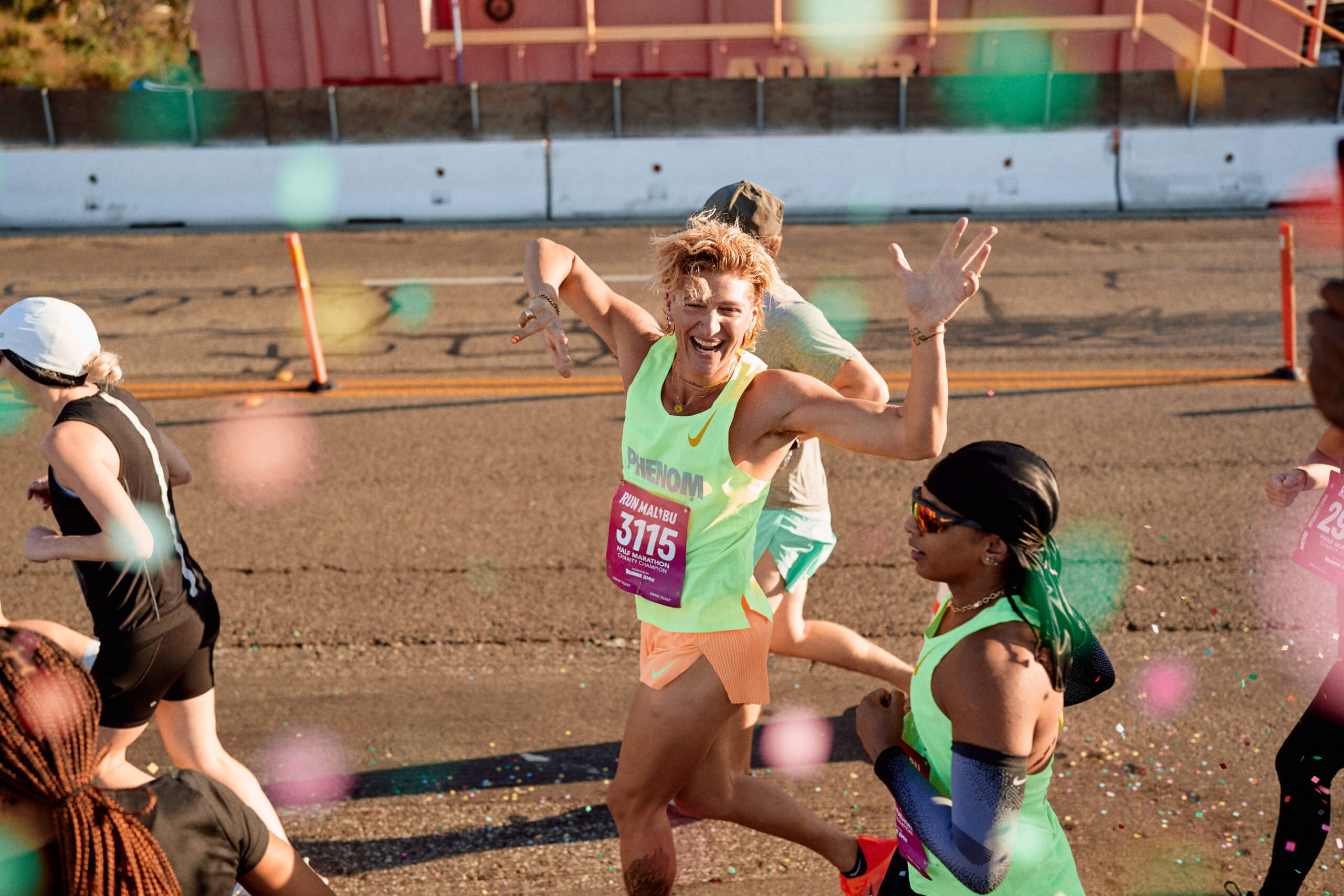
This sense of community has benefited Rose outside the water as well, motivating them to achieve feats they’d never even considered. For example, running a half-marathon. “First of all, I am very much a water person,” said Rose. “I’ve always said I’ve made up for being awkward on land, with being graceful in the water. I’ve always hated running. My friend Janaya Future Kahn is sponsored by Nike. So, the story behind Team Phenom and this whole half marathon thing was that Nike wanted to support trans athletes and Future was like, ‘if you really want to support trans people, then just support regular old trans people and treat them like pros’. So, we had about 14 weeks to go from hating running, to running a half marathon. I still kind of hate running, but we were treated so well by Nike. Almost every week I’d come home to a big box of gear, we had training and coaches and food, and we just got treated so well.”
“In the end, I’m so grateful for the experience,” they continued. “I never thought I would want to do anything like that, let alone be able to. It was like a month before I turned 40, I was just like, you know what, I can still do things I never thought I could do. This is cool! And to do it with a group of trans and queer folks was really empowering.”

With that knowledge in mind, Rose is looking to the ocean and to bigger waves. “I do have a surfing goal of at some point in my life getting inside of a barrel,” grinned Rose. “I’m not to that level yet. That’s going to take bigger waves. I recently was on a surf trip with my trans surf buddy Jess, we had a great time, but it was definitely like, bigger, scarier waves. There was a day where I was like, oh my God, these are so big! I was proud of myself for just going for it and catching some of the biggest waves in my life. My goal is to continue to push myself to move beyond those fears in the water while still being smart about it, and eventually be able to get inside a barrel before I die. Continuing to improve, continuing to surf more. I don’t know if it’s a goal, but it’s just part of my life. I know that if I surf at least once or twice a week, then I’m happy and healthy.”
Empowered by the friendships that surround them and the self-assurance found in exploring their gender, Rose may have found someone even better to be than Luke Perry. For those at the start of figuring out their gender, that feel like they’re standing at the edge of an abyss of uncertainty, Rose has this advice. “I volunteer with trans youth and one thing that often comes up is being able to put aside what other people want for you. When you’re able to really listen to yourself and what you need for your body and your joy, you know, it’s intuitive. But we’re so clouded with what other people will think and society’s expectations. Parents, family, and friends, you know? But when you’re able to put all that aside, you’ll know, deep down, what is right for you.”
